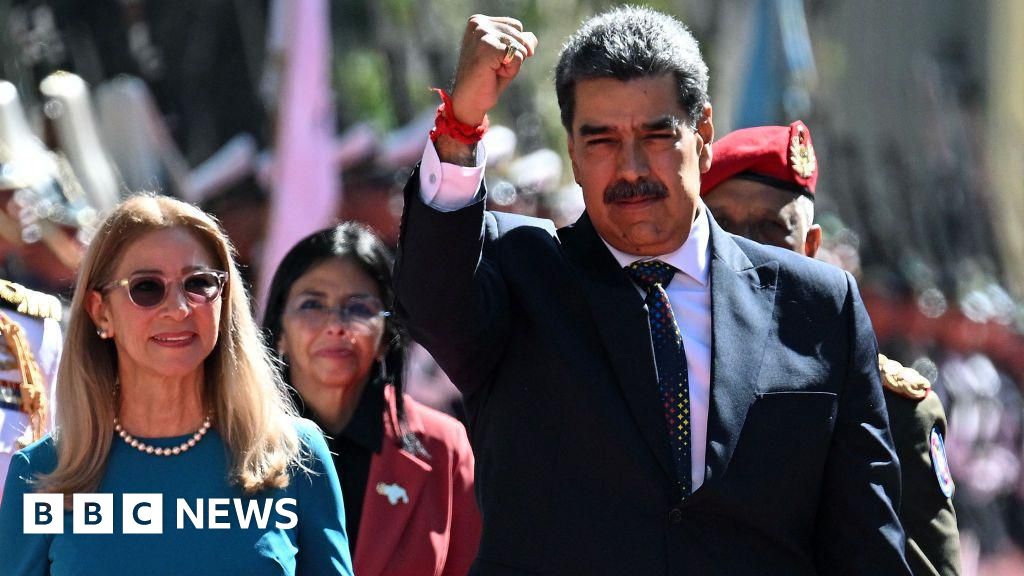I think the time has come to rethink our perceptions of what international football is, and redefine our expectations of major tournaments.
There is a sense from a lot of people watching Euro 2024 that the big guns have not fired; that the star players have not sparkled and the top teams have underwhelmed.
There are significant reasons for this.
As we sit here now in July, a lot of clubs are starting their pre-seasons. But for players involved with their national teams in Germany, last season hasn't finished yet.
In some cases they're playing their 60th or 70th game of the season. Fatigue is a big factor in games played in the hottest months of the summer.
Let's be clear, the best version of these teams and individual players - the ones thrilling us in the Champions League and Premier League - are not necessarily happening right now.
That is significant when we are passing judgment.
Tournament football to me is kind of like the final third of the season when people are actually playing for stuff: titles, promotion, relegation, European places etc.
This is where you might want a good performance, but you need the result.
What we are seeing more often than not is results-based football, which puts us in this position where, at times, it might not be as entertaining as we all want it to be.
There's more of an approach to it, whereby you make sure you're defensively solid first and you try and be expressive second.
The Champions League final is a similar case in point. Very often it features a least one, if not two, of the best teams in Europe. Very rarely does it produce a spectacle which matches up to the talent on the field.
The stakes are frequently so high, people are scared to make a mistake.
There's an element of players and managers at Euro 2024 being reluctant to take chances, because you know the team are good enough that if you go behind the game might be over.
Then when you come up against the so-called smaller or mid-ranking nations, you kind of want them to be open with their style. But those teams have been the exact opposite.
You look at Slovenia, who lost on penalties to Portugal, but across four games they haven't lost a game.
You wouldn't expect that from Slovenia, would you? But they have been very tough and resolute.
The bar in terms of the competitive nature of this tournament is far higher. It's proving quite difficult for some of the bigger sides to break these teams down.
We can talk about how to improve international football as a spectacle but, for me, this is the way that international football is now.
It's still possible to celebrate and love everything that a major tournament brings.
For this European Championship it seems like fans of every nation have been able to make it to Germany and get into the grounds.
They're bringing that vibrancy, that noise, which has probably been missing since Euro 2016 in France.
I enjoy international football for its tactical nuances, for the fact that you can have stars, but stars don't necessarily mean that you'll be successful.
There's great defenders, too...
When we think about international football, we always talk about the attackers.
Most people can name all the best attackers from around Europe, but there are some of the best defensive minds in Europe as well.
They will not create a style of play which benefits the opposition. They will not have players who throw complete disregard to the people they play against.
There might be a clamour for attackers to just get the ball, go on the wing and do this, and do that. But if someone's a really good dribbler, you'll never see them one versus one, because the opposition will ensure it's always one versus two.
With international football, if you can make it as hard for an opposition as possible then you become hard to beat, and when you are hard to beat it gives you a chance.
Equally, some might wonder if we had more attack-minded elite managers would it be more entertaining?
However, I don't think it would be this case that 'better' club managers come in, who can find the extra one or two per cent, would do things much differently.
There's an element of culture with these different nations which dictates how they play because the audience themselves isn't an audience of, say, a Premier League manager.
You get tricked into it because it's led by people who talk about the Premier League all the time as pundits.
There's a lot of supporters not bothered by false nines, and the rest of it.
The last few days I think the narrative has been set regarding England. I was asked to come on a programme "to react to England's performance".
But I thought, why would I not react to England's result?
We're talking more about the performance than the result itself now.
But if the result is a positive one in these final stages, then surely that's the objective?
England at Euro 2020 were not at their best in the final against Italy, but they only lost on penalties so their performance is only really discussed because of the fact they lost.
Had they won the shootout, how many people would discuss the performance and say it needs to be better for the next tournament? Nobody.
That's kind of where we're at. It's making some people uncomfortable because they believe if you're not playing well you're going to lose.
Yet if you have the ability to grind out a result, I think that's a huge asset to take it into the final stages.
Nedum Onuoha was speaking to BBC Sport's Timothy Abraham.
 (1).png)
 6 months ago
26
6 months ago
26


















